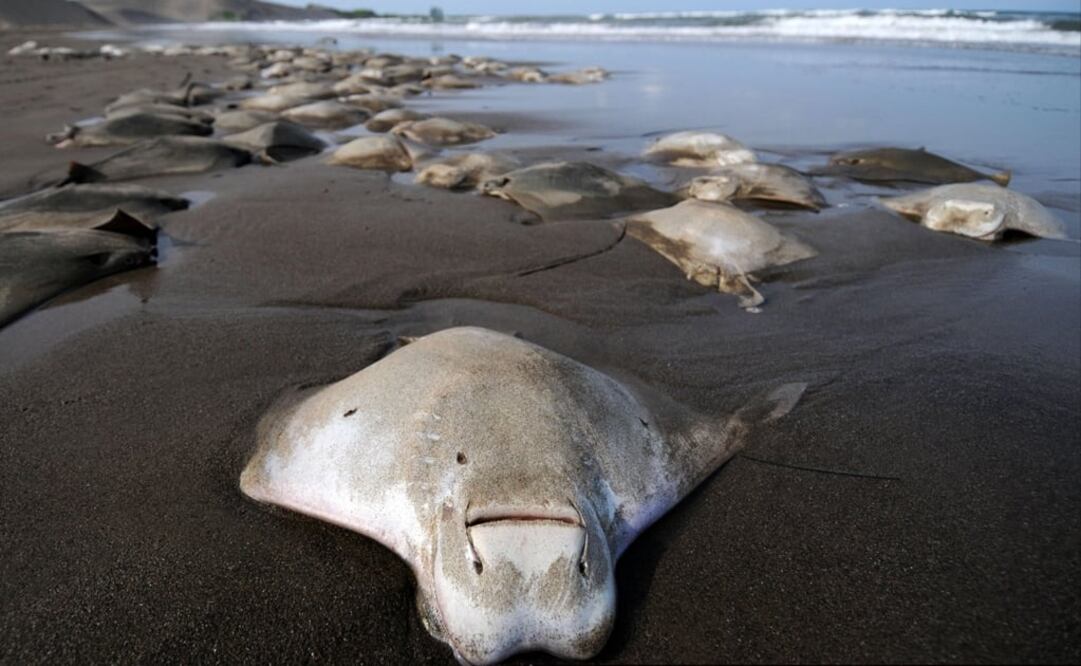Más Información

A un año del hallazgo en Rancho Izaguirre; “las autoridades apuestan a que se nos olvide”, reclama madre buscadora

Mundial 2026: Sheinbaum anuncia comité para rifar su boleto; Charlyn Corral, Katia García y Gabriela Fernández lo integran

The New York Post identifica a hija de “El Mencho” como dueña de cafetería en California; clientes la describen como “agradable y respetuosa”

Reforma electoral “no debe entenderse como ruptura”: Sheinbaum; esta es la exposición de motivos de la iniciativa

Desaparece Karol Toledo, otra estudiante de la UEAM; rectora pide a autoridades acciones rápidas para su localización
On April 20, 2010 , the Deepwater Horizon oil platform , from the British Petroleum oil company , caused the death of 11 people and the sinking of its structure two days later while the company extracted oil at Mexican waters near the Gulf of Mexico . For the next 87 days, over 200 million gallons (780 million liters) of crude oil were spilled , which accounts for an average of 8.9 million liters a day at a depth of 1,500 meters .
The spill, which was considered to be the greatest ecological disaster in the history of the United States , affected 1,773 kilometers of the coastline and it is believed that around 37 million liters remain in the sediment deep in the Gulf, which could cause a great deal of damage to marine life, a phenomenon that has hardly been explored thus far.
Eight years after the catastrophe, a team from the Florida Atlantic University has measured the effects of the crude oil in the olfactory function of a marine vertebrate: The Atlantic stingray ( Hypanus sabinus ). The results published in the Scientific Reports journal , have shown that the oil spill has damaged the sensory system of this elasmobranch fish, which is essential for its survival.
Scientists have confirmed that, barely 48 hours after exposure to crude oil, the stingray’s olfactory function deteriorated significantly, which could have a negative effect on its physical fitness, leading to a premature death and have cascading effects on the ecosystem.
“ The elasmobranch fish are famous for their acute sensory systems , which are essential to warn them against predators, prey, potential mates, and unfavorable environmental conditions. Any deterioration in their sensory systems could have a detrimental effect on their survival and their physical condition,” stated Stephen M. Kajiura, co-author of the report.
The effects of crude oil on stingrays
The investigators conducted an electrophysiology study to assess the olfactory response of stingrays kept in clean water against the response of those living in water contaminated with oil. The latter showed a lack of responsiveness.
“Unlike other sensory systems in which receptor cells don’t come in immediate contact with the environment –such as sight, hearing, the lateral line (which allows for marine animals to detect water movements and vibrations), and electro-receptive organs -, chemosensory cells from the olfactory organ are directly exposed through mucus to ocean water,” explained Kajiura.
As a result, polluting substances cause direct damage to receiving cells, affecting the animal’s olfactory function. “In the wild, the stingrays are likely to find varied concentrations of exposure, which may be higher or lower than the concentration used in this experiment,” the expert explained.
However, acute exposure can cause other physiological responses, aggravating the negative effects of an altered olfactory function. “Even if the oil doesn’t cause their immediate death, other effects could reduce their physical fitness and lead to a premature death,” Kajiura concluded.
dm
Noticias según tus intereses
[Publicidad]
[Publicidad]










